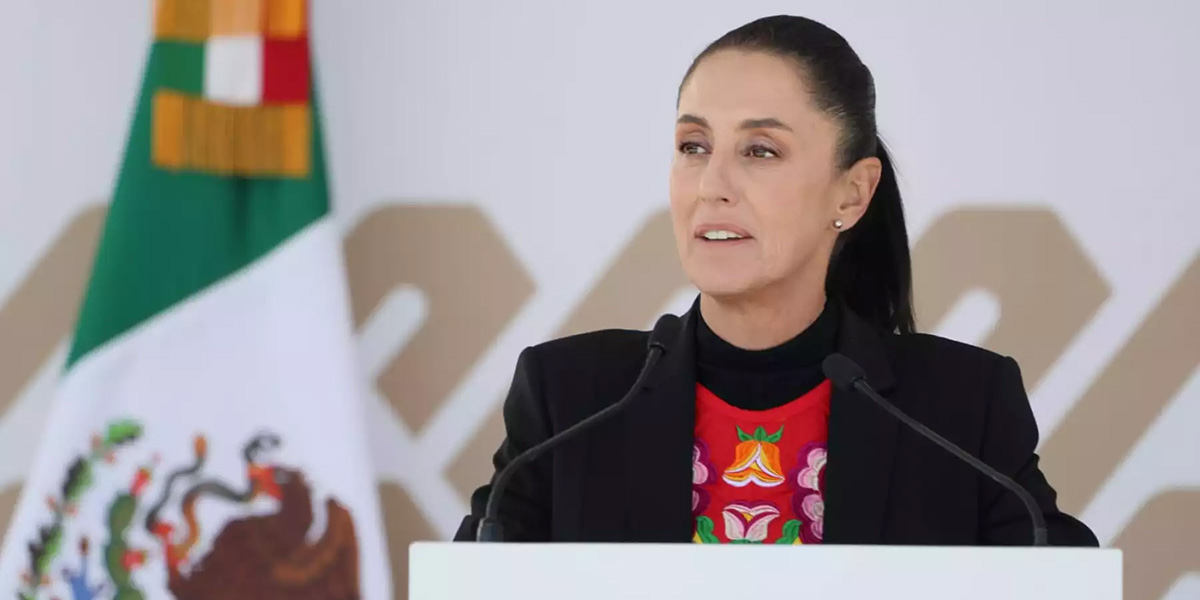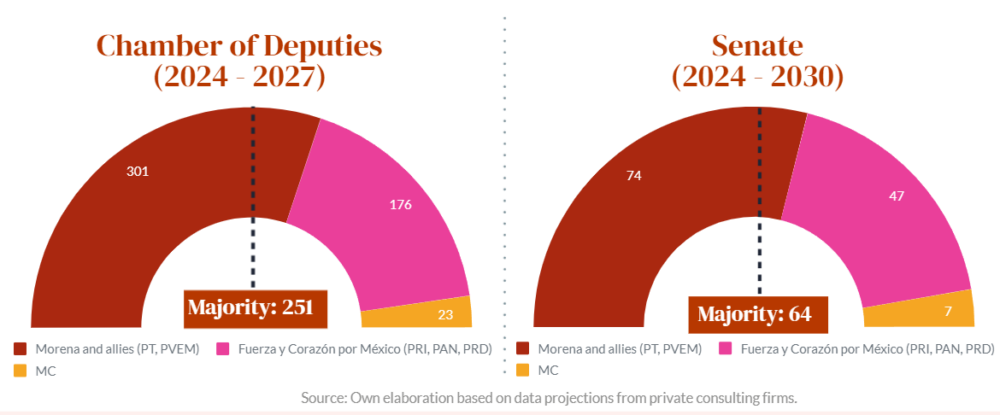Sheinbaum leads Mexico’s electoral race to become its first female president

On June 2, Mexico will hold its largest elections in history, with nearly 20,000 positions up for grabs. These elections will not only determine the next President but also renew the entire Congress, 9 governorships, and 30 local congresses. With no possibility of a runoff, the candidate with the most votes will become President and will take office on October 1.
Current polls favor Claudia Sheinbaum, who aims to build on the achievements of President Andrés Manuel López Obrador (AMLO) under the “Fourth Transformation” (4T) initiative. Xóchitl Gálvez, leading a coalition that includes the PRI, PAN, and PRD parties, is seen as her main competitor.

Sheinbaum enters the elections as the frontrunner, consistently leading the polls with around 50% support since the campaign’s inception.
At the legislative level, all 500 seats in the Chamber of Deputies and 128 seats in the Senate will be contested. Predictions suggest that Sheinbaum’s polling advantage and the significant territorial influence of Morena could allow the ruling party, along with its allies, to secure an absolute majority (more than half ot the total seats) in both chambers. However, achieving a qualified majority (two-thirds of the total seats), necessary for constitutional reforms, appears unlikely. Consequently, if Sheinbaum wins, the success of her more ambitious legislative agenda will hinge on her ability to negotiate and build alliances with the opposition.
Claudia Sheinbaum: Morena’s chosen one
Claudia Sheinbaum is a 61-year-old physics graduate with a left-wing and technocratic orientation, and has an extensive political career and has held multiple public positions, most recently serving as the Chief of Government of Mexico City (CDMX) from 2018 to 2023.
Her government proposals include continuing to increase the minimum wage in real terms and boosting tax incentives for artistic and film production. She also advocates for fair tax collection from large taxpayers without raising the overall tax burden. In healthcare, Sheinbaum plans to advance the establishment of the Latin American and Caribbean Medicines Agency (AMLAC, in Spanish), implement a National Pharmaceutical Policy, and strengthen the regulatory framework to ensure efficient sanitary registrations of medicines. In alignment with President Andrés Manuel López Obrador’s administration, Sheinbaum intends to dismantle certain autonomous agencies, including the Federal Economic Competition Commission (COFECE, in Spanish) and the Federal Telecommunications Institute (IFT, in Spanish).
Legislative Elections
The upcoming June 2 elections will mark a significant renewal of seats in the Congress of the Union, encompassing 500 seats in the Chamber of Deputies and 128 in the Senate. Early projections suggest that the ruling party and its allies may experience an increase in seats in the Chamber of Deputies, potentially falling short of the anticipated qualified majority. However, projections indicate minimal modifications in the current balance of power in the Senate for both the ruling party and the opposition. Consequently, it appears likely that the ruling party will maintain its absolute majority in both chambers, albeit without reaching the qualified majority necessary for constitutional reforms.

Despite this, the opposition has shown reluctance to support such reforms during the latter part of AMLO’s administration. This sets the stage for a significant legislative challenge should Sheinbaum emerge victorious, given her intention to pursue amendments to the Constitution as outlined in her government program. As a result, navigating the legislative arena and garnering support for constitutional reforms will emerge as a primary challenge in the event of Sheinbaum’s triumph.
